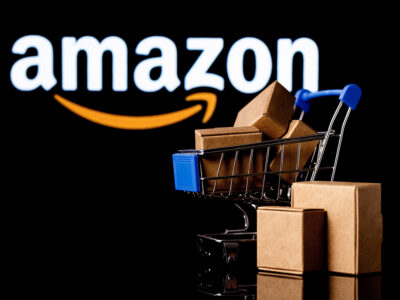UAE residents spent more when they purchased groceries online last year compared to when they physically visited supermarkets, spending 40 percent more on e-commerce baskets than physical baskets, according to payment company Network International.
The increase can be attributed to a shift in consumer behaviour following coronavirus related restrictions last year with safety concerns and convenience prompting a growth in online and contactless purchases.
The largest difference between e-commerce and in-store transaction values was recorded in November with online average transaction value ATV at AED279, more than double that of point of sale (POS) at AED138. In the early days of the UAE lockdown in March, the average e-commerce basket value was at AED294, 45.6 percent higher than POS at AED202.
“The past year has fundamentally transformed one of our biggest weekly chores driving a significant portion of the population to do their supermarket shopping online,” said Nandan Mer, Group CEO of Network International said.
“Looking ahead, it’s clear that an increasing number of consumers may continue to shop from the comfort and safety of their homes, appreciating the convenience that e-commerce and contactless transactions can bring them,” he continued.
The rise in e-commerce ATV was accompanied by a 93 percent increase in overall online supermarket spending volume in March during the lockdown period, and further increased post-lockdown as residents continued to remain cautious and stay at home to avoid infection.
However, the increase in spend dropped to 85 percent in April as frustrated consumers complained about facing weeks-long delays in deliveries while retailers struggled to tackle the logistical challenges of the unprecedented demand for deliveries.
 Nandan Mer, Group CEO of Network International
Nandan Mer, Group CEO of Network International
Spending jumped upward to 114 percent in May and 280 percent and 152 percent in November and December respectively. This growth was aided by the accelerated adoption of e-grocery start-up platforms and mobile applications as well as the rapid pivot made by food delivery and ride hailing apps to include groceries and other essentials as part of their offering.
Meanwhile, POS spending volume among UAE residents consistently declined, from 32 percent in March to 10 percent in May, further dropping at 6 percent in June and 12 percent in December respectively, signalling the increased dependence on digital and contactless commerce, and a likely permanent shift in customer behaviour.
Contactless spending volumes has also climbed since lockdown, up by 53 percent in March and increasing further to 64 percent in December while regular transactions were down by 54 percent in the last month of the year.








